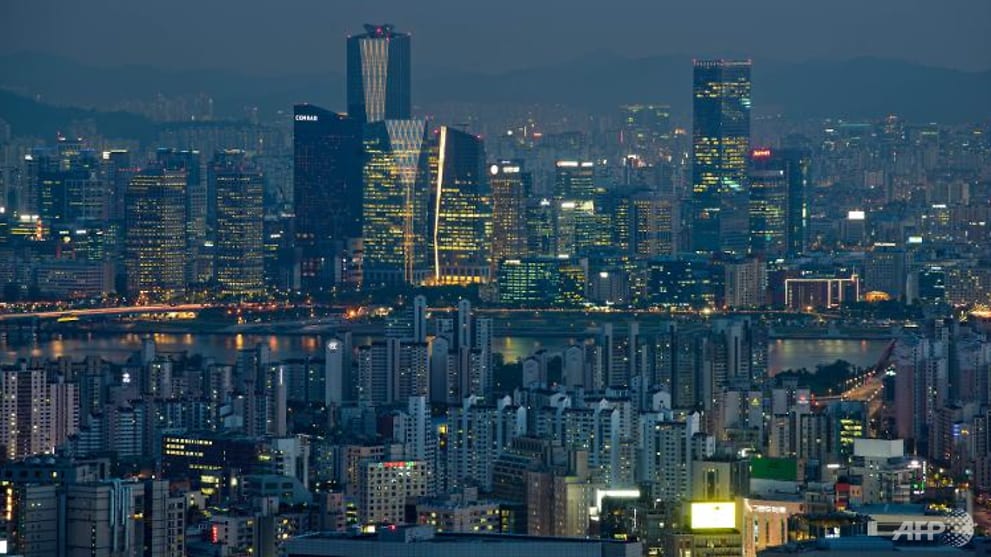
South Korea cuts growth forecast to lowest in decade
SEOUL: South Korea's central bank on Friday (Nov 29) cut its growth forecast for this year to 2 per cent, which would be the weakest rate in a decade as the economy is battered by trade disputes.
The world's 11th-largest economy is highly dependent on international commerce but is grappling with the fallout of a prolonged China-US trade dispute and embroiled in a spat of its own with neighbouring Japan.
The Bank of Korea cut its 2019 growth forecast from 2.2 per cent to 2 percent, governor Lee Ju-yeol, told reporters, also trimming its prediction for next year to 2.3 per cent from 2.5 per cent.
The 2 per cent figure would be the slowest expansion since 2009, when the country posted 0.8 per cent growth in the wake of the global economic crisis.
In a statement the BOK said exports were facing continuing "sluggishness", while domestic consumption growth had also weakened.
The numbers bring the BOK's forecasts into line with the International Monetary Fund.
The US-China trade war has heightened global economic uncertainty while South Korea and Japan have been at loggerheads over wartime history, with Tokyo in July tightening export controls on three chemicals essential to South Korean tech companies such as Samsung.
An easing of the dispute between Beijing and Washington would see global investment rise and "contribute to an increase in our exports", governor Lee said, but added that would not be enough on its own to ensure strong economic momentum.
The central bank kept its key interest rate at a record low 1.25 per cent in an effort to prop up growth, having announced two cuts already this year.
South Korean President Moon Jae-in came to office in May 2017 with an economically unorthodox policy of "income-led growth", promising to jump-start expansion through a series of labour-friendly policies such as wage increases.
But expansion has since been slipping.